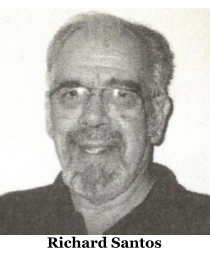Is there a Tejano language?
Many years ago, the distinguished San Antonio historian Richard Santos asked me if I knew the Spanish word for baking powder. Before revealing my answer and our remaining conversation, let me sidetrack a bit.
I recently researched elements that make up the Tejano identity, and I ran across an article in San Antonio’s La Prensa of October 31, 1917, that treated a similar query. The question was whether “londrera” was a word. The newspaper responded that it was not a palabra castellana nor a palabra inglés nor tejana. La Prensa said that it was not a Tejano word because a Tejano language did not exist.
There was no Tejano language, the newspaper said, because there was no scientific authority to approve it, nor was there a civil authority to recognize its use. The Tejano spoken was partly Spanish, partly English, and adulterated and Spanishized English words. For example, “londrera” was a Tejano idiom for launderer or washerwoman. The correct Spanish word lavandera.
La Prensa was not familiar with Don Francisco Pimentel’s recognition of 48 native American languages, including tejano spoken in Coahuila and Texas. But, of course, modern-day Tejanos, including those living in 1917, do not speak the native tejano language.
All of this, bring me back to the noted cronista Richard Santos’ question. My response to his question on the Spanish word for baking powder was espouda. Santos was only mildly impressed that I knew the correct answer. I say that because, being from South Texas, he and I were familiar with what La Prensa would have said was an idiom.
Espouda comes from the phrase “el baking powder,” Santos explained. But, he added,
“you will not find it in any dictionary,” English or Spanish. “But, three million people can’t be wrong.”
So, take that La Prensa and look it up in your Funk & Wagnalls.
Santos “enjoyed stirring up people and making them think,” his wife Sally once said.
In fairness to La Prensa there is no Tejano language and they are right, many Tejano words are idioms or slang. Asi que no parques tu carro o troca en el hiway porque te van a decir que eres un huey.
But, wait a minute, parquear, carro, troca are all now found in Spanish dictionaries. How about that!
Give it some time, espouda may still make it to the dictionary, but if it doesn’t, now you know what it means if you didn’t already.





Comments
Post a Comment
We welcome constructive comments and invite you to share your own research if you would like. Thank you.